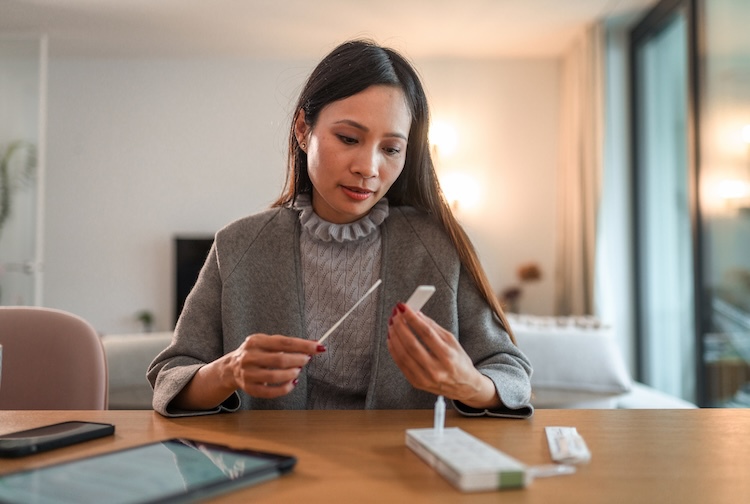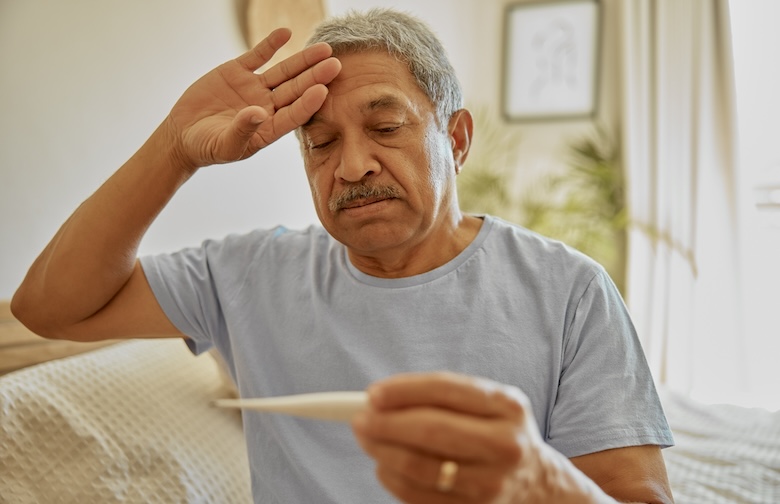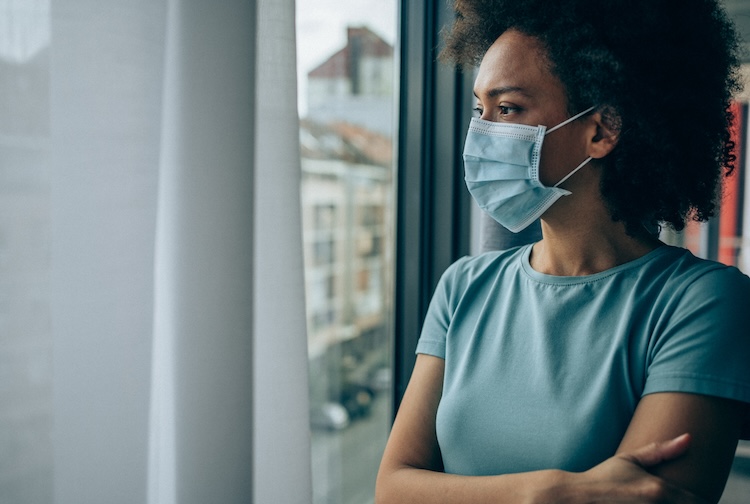
Rise in COVID-19 activity as new year begins
Identified in late 2023, Omicron variant JN.1 now makes up the majority of new COVID-19 cases around the world.
January 16, 2024 Several respiratory illnesses are circulating at the same time this winter. The only way to truly know which virus you have is by getting tested. (Getty Images)
Several respiratory illnesses are circulating at the same time this winter. The only way to truly know which virus you have is by getting tested. (Getty Images)
By Sara McCloskey
As people return to work and school from winter break, infectious disease experts at VCU Health are seeing a rise in COVID-19 activity. In particular, they are tracking a new COVID-19 variant that is circulating widely across the country and globe.
As of early January, the Centers for Disease Control and Prevention estimates Omicron variant JN.1 makes up about 62% of new cases. That’s up nearly 20% from late December.
While more people have recently been diagnosed with COVID-19, fewer of these individuals are being hospitalized compared to this time last year. Infectious disease experts attribute this change in illness severity to greater immune system protection from both vaccines and prior infections.
“Vaccines are created to prevent people from getting severely sick and needing to go to the hospital. Even though the protection provided by vaccines as well as built-up immunity from prior infections is currently working, it is important to stay vigilant. COVID-19 is not going away and the long-term effects, such as long COVID, are still concerning, especially for medically vulnerable patients,” VCU Health infectious disease expert Gonzalo Bearman, M.D., said.
Bearman and other medical professionals note that JN.1 may increase the spread of COVID-19 this winter. Here’s what we know so far about this new variant:
Are the symptoms of Omicron JN.1 different than other COVID-19 variants?
It’s not clear right now if JN.1 causes symptoms that are different from other variants of COVID-19. Overall, the symptoms of COVID-19 variants tend to be similar.
Some of these include:
- Fever or chills
- Cough, shortness of breath or difficulty breathing
- Fatigue
- Muscle or body aches
- Headache
- Sore throat
- Congestion or runny nose
- Nausea, vomiting and diarrhea
It is also important to note that symptoms can vary depending on an individual’s overall health, which affects their immune system.
Two other respiratory illnesses, influenza (flu) and respiratory syncytial virus (RSV), have similar symptoms to COVID-19 and are spreading at high rates this winter. The only way to truly know if you have one of these illnesses is to get tested. Households in the United States can order free COVID-19 tests through a federal program, while supplies last.
Does this variant make people more severely sick?
Currently, federal health experts say there is no evidence that JN.1 causes more severe disease. There is also no evidence that JN.1 presents an increased risk to public health compared to other variants circulating in communities.
Even though not as many people are being hospitalized compared to this time last year, there are still some populations at more risk of getting severely ill from COVID-19. Those groups include people with chronic illnesses, those who are pregnant, children and older adults.
If I have COVID-19, at what point should I see a doctor or go to the hospital?
If you have mild symptoms, it is best to stay home. You should still get tested and contact your doctor, especially if you are considered at high risk of getting severely sick.
You should seek urgent medical care if you are:
- Having difficulty breathing or persistent chest pain
- Increased confusion or decreased consciousness
- If your lips/nails/skin becomes pale/blue/gray (which can be a sign that you are not getting enough oxygen)
If you or someone you know is experiencing symptoms that are severe or concerning, contact your primary care provider. Children’s Hospital of Richmond at VCU has some tips.
As a reminder, how can I best protect myself from COVID-19?
The best way to protect from COVID-19, Bearman says, is to stay up to date on voluntary vaccinations and boosters. If you have any questions or concerns, do not hesitate to reach out to your primary care provider.
Here are other tips to help prevent the spread of COVID-19 and other respiratory illnesses:
- Wash your hands often with soap and water for at least 20 to 30 seconds.
- Avoid touching your eyes and mouth as much as possible. If you are sick: stay home.
- Try to avoid contact with others as much as possible.
- Use tissue paper or your upper sleeve to cover your cough and sneeze.
- Consider wearing masks, particularly if you are in a crowded public place (like a public bus or train) or if you’re around others who may be sick or at high risk of getting severely ill.
As we have experienced, things can quickly change with COVID-19 and respiratory illnesses. Be on the lookout for any changes in recommendations from medical professionals locally or federally.



